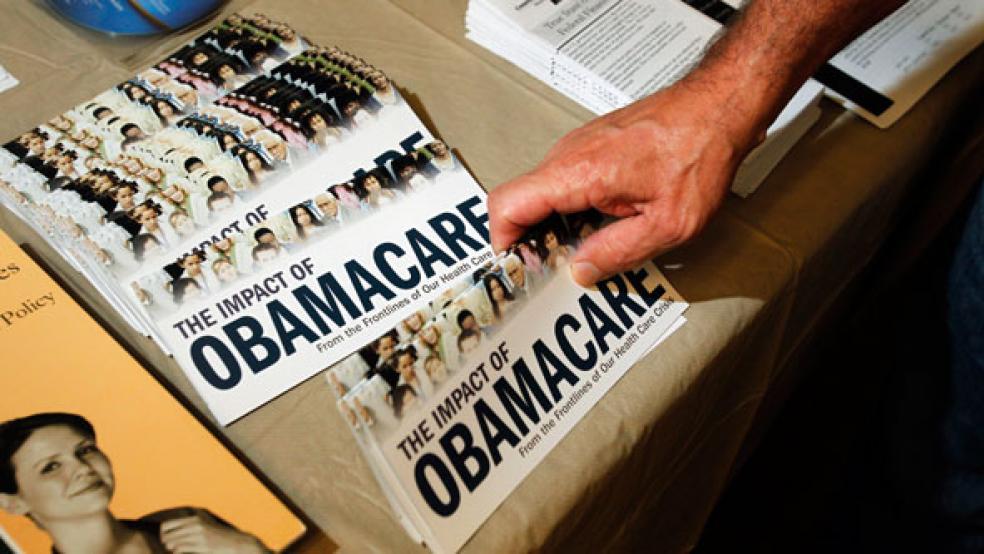Some lawmakers are still seething over an administration decision nearly two years ago that has shortchanged the Treasury of billions of dollars by shifting the funds to an obscure Obamacare program aimed at protecting insurers against major losses.
The so-called Transition Reinsurance Program was designed as a three-year experiment to help guard against major premium hikes by offsetting the high cost to insurers of providing health care coverage to the least healthy Americans. Essentially, it helps to “smooth out losses” for insurance companies operating in the Obamacare individual market.
Related: UnitedHealth Makes Good on Threat to Pull Out of Obamacare
But a tax imposed on all insurers in the country to fund the TRP and simultaneously bolster the U.S. Treasury has proven to be grossly inadequate. And an agency of the Department of Health and Human Services decided in 2014 to shift most of the funds to the reinsurance program without consulting Congress.
The diversion of billions in funds is the latest in a series of controversies around the Affordable Care Act’s operations and funding. Earlier this month, United Healthcare, the nation’s largest health insurance company, said it was pulling out of most of the ACA exchanges where it currently operates by 2017 because of serious losses. And a multitude of financial and management problems forced nearly half of the original 23 non-profit insurance coops out of business by late last year.
Earlier this month, Republicans on a House Energy and Commerce subcommittee grilled HHS official Andy Slavitt concerning his agency’s decision to divert funds away from the Treasury, which some denounced as an insurance industry “bailout” that comes at the expense of taxpayers.
Subcommittee Chairman Rep. Tim Murphy (R-PA), argued that decision was unlawful because the Affordable Care Act specifically states that the Treasury would receive funding, according to the Morning Consult.
Related: Obamacare’s Bait and Switch Has Left Consumers Scrambling in 2016
“The administration cannot rewrite its own law to make it more convenient for special interests,” Murphy said. “This is a dangerous precedent and is an affront to the separation of powers. . . Moreover, this program funnels money to insurers — now with money intended for the Treasury — in an attempt to prop up Obamacare.”
A new legal opinion prepared by former GOP White House Counsel C. Boyden Gray for the conservative, free-market Galen Institute, concludes that Slavitt’s Centers for Medicare and Medicaid Services is diverting $3.5 billion to insurance companies it was “legally obliged to remit to the Treasury.”
The letter – reported this week by Forbes – said, “By the time the books close on TRP for the 2014 and 2015 benefit years at the end of 2016,” insurers eligible for reinsurance “will likely have received 98 percent of expected payments” – or $15.6 billion out of an expected $16 billion.
By contrast, the Treasury will likely have received only 12 percent of expected payments, or just $495 million out of an anticipated $4 billion, according to the letter.
TRP is one of three special programs created under the Affordable Care Act to protect the financial interests of the health insurers that ventured into a new and untested market.
Related: Uninsured Rate Hits New Low, but Obamacare’s Still a Hot Potato
The so-called “risk corridor” program was designed to limit losses or gains beyond an allowable range. Insurers that made more than the allowable gains were obliged to return part of it to the program, while companies that badly underestimated their coverage costs could dip into the fund to avert losses.
But Sen. Marco Rubio of Florida and other congressional Republicans criticized the risk corridors as another industry bailout and forced sharp cuts in the program’s funding over the past two years. Last October, the administration had no choice but to provide 12.6 percent of the $2.87 billion that insurers were seeking to offset losses.
The controversy over the TRP is different because it relates to efforts to hold down premiums and it involves revenues raised by taxing the entire health care industry, not just those insurers taking part in Obamacare.
Slavitt, the acting director of the Centers for Medicare and Medicaid Services, defended his agency’s decision to divert Treasury funds to the TRP during his appearance before the House subcommittee this month.
Related: More Bad News for the Remaining Obamacare Co-ops
Slavitt, who was not at CMS when the decision was made, told lawmakers that it is common for federal agencies to update regulations as officials learn more, according to Morning Consult. While insisting that the agency did indeed have the legal authority, he conceded that the statute was unclear as to what officials should do if the reinsurance pool wasn’t as large as expected.
Joseph Antos, a health care expert with the American Enterprise Institute, said on Tuesday that the controversy highlights the “porousness” of the Obamacare reinsurance provision. “If the administration gets away with this, the process will become hollow.”
“The number was written into law, so it shouldn’t have been confusing at all, and the policy action wasn’t taken,” he said in an interview. “In other words, the money never got to the Treasury.”
He said that Gray’s analysis was essentially right, but that he doubted the controversy would be resolved this year, before the election.





